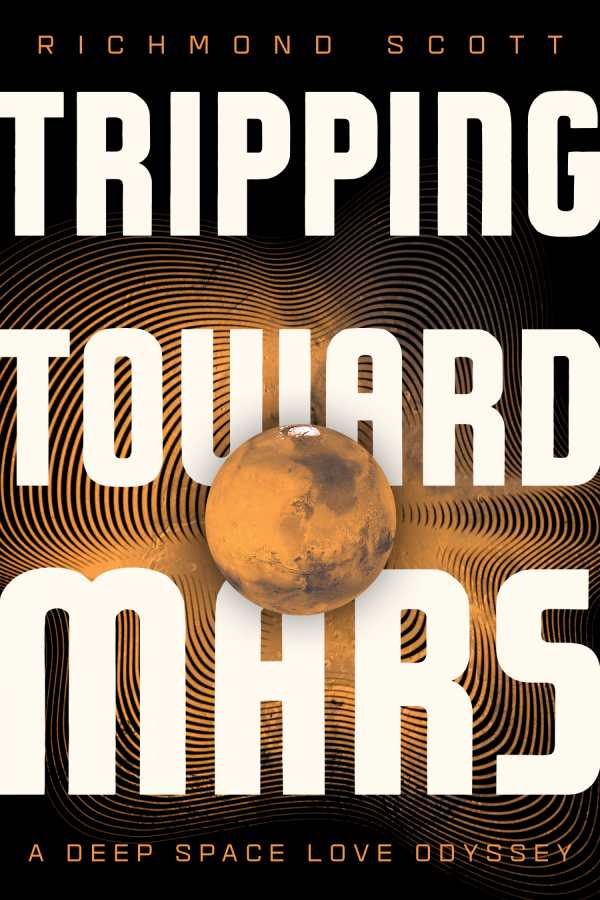Tripping Toward Mars
A Deep Space Love Odyssey
Love, against all odds, emerges as the prevailing factor of a space colonization mission’s success in the satirical science fiction novel Tripping Toward Mars.
An international race to reach and colonize Mars is backdropped by twisted political motivations and polyamorous love in Richmond Scott’s uproarious science fiction novel Tripping Toward Mars.
In the near future, Addy is chosen as the commander of the Arcadia 7 and is sent on a NASA mission to bring Americans to Mars for scientific study and colonization. With him on the crew are his wife, Bria, and two additional astronauts, João and Sally, who are also a couple. At the same time, a privately financed mission, Q-Orbit, preps its own voyage to the red planet with fifty passengers, who are dubbed the “First Fifty.”
A suitable frenzy ensues as the launch windows for liftoff come and go, with marketing campaigns, greedy corporate sponsorships, and a reality television show highlighting the Q-Orbit team’s interpersonal dramas and preparations. The Chinese government also joins the fray, intending to launch their own mission with just two astronauts. All is further complicated by a messy presidential race, in which an absurdist candidate employs incendiary rhetoric, threatening instability on Earth and for those on their way to Mars.
As the crew of the Arcadia 7 travels further into space, worries over which mission will make it to Mars first make Addy obsessive. His risk-taking decisions threaten to derail the safety of the landing and of the crew’s eventual return to Earth. A discovery of a huge supply of hallucinogenic pills aboard the Arcadia 7 leads to a sudden about-face for the morale of the crew, though.
The introduction of hallucinogenics initiates spiraling, often quite hilarious, developments in the book. In this space opera, anything goes: The delicate relationships of those aboard the American ship are forged, fostered, revamped, and skewered in intimate detail. And all of this is witnessed on Earth in the course of enormous, live public viewings. Willful insubordination trumps the need for lawful obedience, and the rapid breakdown of the human ego serves Arcadia 7 well. Love, against all odds, emerges as the prevailing factor of the mission’s success.
Written in a loose epistolary format, the book uses the hindsight clarity of retrospection to inform its active story, which sometimes seems to move at the speed of light. Addy, though neurotic and flawed, is an introspective hero, helping to draw myriad parallels between his cultural touchstones and contemporary concerns. Features like the Arcadia 7‘s polyamorous romps and a surprise twist when it comes to those involved in the colonization race act as guiding lights for the book’s nuanced extrapolations of cultural shifts. The interpersonal chemistry of the cast is explored with potent humor and wit, complementing the story’s rollicking developments.
An engaging speculative science fiction novel, Tripping Toward Mars is about often muted desires and fascinations as well as relationships, trust, love, and geopolitics.
Reviewed by
Ryan Prado
Disclosure: This article is not an endorsement, but a review. The publisher of this book provided free copies of the book and paid a small fee to have their book reviewed by a professional reviewer. Foreword Reviews and Clarion Reviews make no guarantee that the publisher will receive a positive review. Foreword Magazine, Inc. is disclosing this in accordance with the Federal Trade Commission’s 16 CFR, Part 255.

